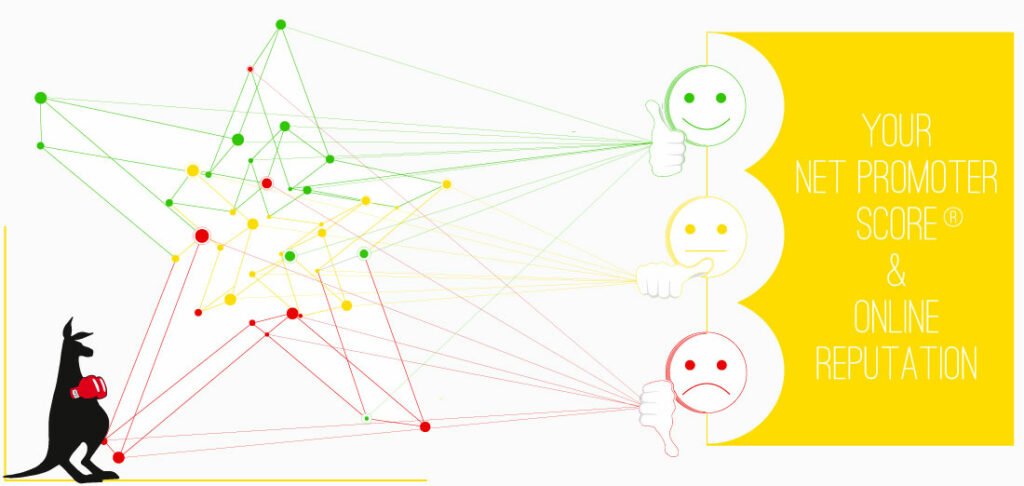NPS®, or Net Promoter Score®, is a widely-used customer loyalty metric introduced by Fred Reicheld in 2003. Over the last five years, the NPS® has become the standard by which businesses can measure customer satisfaction as it relates to both customer retention and loyalty.
It’s scored by subtracting the percentage of Detractors from the percentage of Promoter, yielding the Net Promoter Score®, which is somewhere between 0 (if every customer were a Detractor) to a high of 100 (if every customer were a Promoter). Ultimately, for a business, it measures how willing its customer base is to recommend their services to family or friends.
A business’s NPS® is directly tied to its online reputation. A Net Promoter Score® is a rating generated to assess brand loyalty and is a key component to understanding how customers view a specific business and therefore, their willingness to spread the love about it.
Often, it’s generated through surveys in which customers gauge their experience based on a numerical value (one [1] being the worst and ten [10] being the best), as well as comments.
Some example questions are: Was the customer satisfied with their experience or their stay? What could the business do better? On a scale of one to ten, how likely is the customer to recommend the company to a family or friend? On a scale of one to ten, how was the customer’s overall experience?
The information can provide businesses a benchmark for how their customer experience is currently performing and where it needs to go in order to improve. Maybe day-to-day transactions need to be ironed out, an employee needs to be retrained (or even fired), or the front-desk interaction needs a shining. Goldfish Swim School, one of our wonderful clients, regularly uses their NPS® and online reviews to improve their operations, ultimately providing a better experience for their customers.

Businesses with a 70% NPS® or higher get a whopping 81% of all online reviews, including negative and positive ones.
Customers of those businesses with high a Net Promoter Score® are talking. They are telling their friends, their family, their dog groomer and their twice-removed cousin’s estranged brother. These people are talking because they are satisfied and happy with their experience. Not only are they rating high on surveys, but they are also telling people about the business.

Conversely, businesses with an NPS® of 50% or less get a measly 1% of all online reviews. And this may sound bizarre, but we’ve found that no chatter is almost as bad as having all one or two-star reviews. At least with the latter, people are talking about your business; it’s a start and those reviews give you the opportunity to convert Detractors into Promoters.
(We outline the three different kinds of customers—ecstatic, static, and vulnerable, also known as promoters, passive, and detractors, respectively—in our January article. You can read it here.)
It’s sort of an old saying: All you can do is ask. What’s the worst they can do? Say no? In this case, the worst thing that could happen would be for them to say no. However, according to a recent WebPunch study, a large percentage of consumers aren’t even being asked to survey the businesses they’ve hired, despite the fact that they are open to answering questions.
Nearly half of the customers we surveyed did not receive a survey in the last six months and only 32% answered 1-3 surveys in the last month. Thankfully though, 41% of customers are willing to answer one to two questions to rate a business and 33% are willing to answer three to five questions.
The bottom line is, people are willing to give you feedback. But you’ve got to put yourself out there and ask them for it. What do you have to lose, right?

Matthew Van Deventer is a content creator for WebPunch. As a dealer of words, he dabbles in journalism and loves a good story, whatever the medium. Matthew lives outside of Denver, CO with his wife, daughter, and pup, Chewy.


